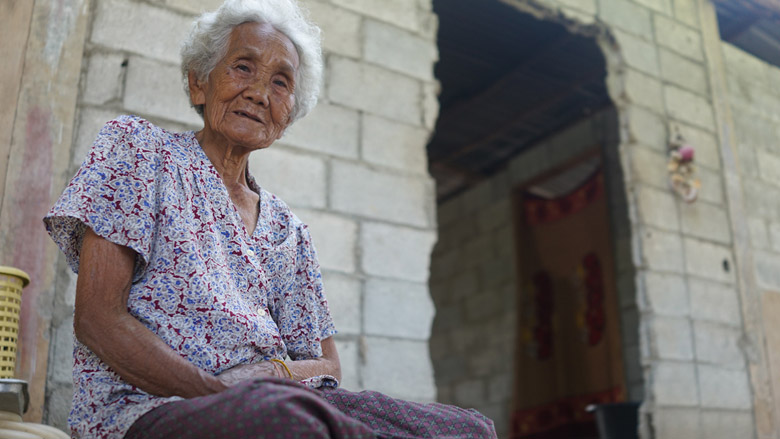Elderly, emergency in Thailand: millions still at work, without family and social protection
More than five million seek employment over the age of 60 to survive. Those in the less developed regions in the north, east and south are in the greatest difficulty. In Bangkok 'only' 25% have to work. Public pensions are inadequate, difficult to access a private or company pension fund.
Bangkok (AsiaNews) - The discomfort of the elderly is growing in the "land of smiles". There are over five million people forced by necessity to work beyond the age of 60. In need of economic support, victims of the economic stagnation of the cost of living, but also of family protection that many lack.
A situation that the prospects of the limited welfare dedicated to them and the increase in number - in a rapidly aging country - makes even more difficult in the future.
The latest demographic survey developed by the National Statistical Office shows that there are 13.4 million over-60s, equivalent to 19.5% of the 66 million Thais; 37.5% of them (over a third of whom are women) are looking for a source of income which is essential for survival. In terms of numbers, there was an increase of 370 thousand units compared to 2022.
Significantly, the majority of them live in the northern, eastern or southern regions that are less prosperous and developed, but also with lower levels of education than the central ones where Bangkok is located, where "only" 25% of the elderly have to work.
According to official statistical data, the percentage of the total of this category of seniors who have never attended school or have only obtained a primary school diploma exceeds 68%. This makes it difficult for them to access jobs that are not physically demanding or (almost 90%) precarious.
The average income of elderly people in non-agricultural jobs is 12,151 baht, equivalent to 300 euros per month, which drops to less than half for those still active in agriculture; the majority of these are not granted any social benefit, starting with accident insurance.
The economic and employment contingency also affects many young people, who have completed their studies but encounter growing difficulties, both personally and in their families.
Public pensions are inadequate, both those granted to everyone aged 60 and over, equivalent to 600 to 1,000 baht per month depending on age, and those guaranteed by years worked and sectors of employment for those who access contractual work.
Despite the exponential growth of the insurance sector and the multiplicity of proposals, the economic possibility of accessing a private or company pension fund remains distant for many.
With an average family income of 700 euros per month but with large disparities by area, family expenses leave little room for investments in the future; it is no coincidence that it is estimated that each household is indebted on average, especially for the house, for over 197 thousand baht (around 5 thousand euros).
All this makes the elderly person's stay in the family and their assistance more difficult. However, the increase in single elderly people shows how family support is also failing under the pressure of economic difficulties, evolving customs and largely inadequate public support.
17/01/2022 12:24
28/09/2019 08:10







.png)










